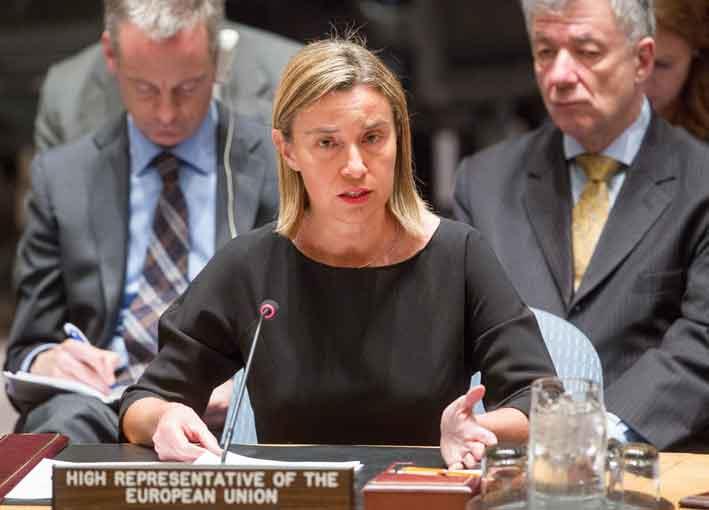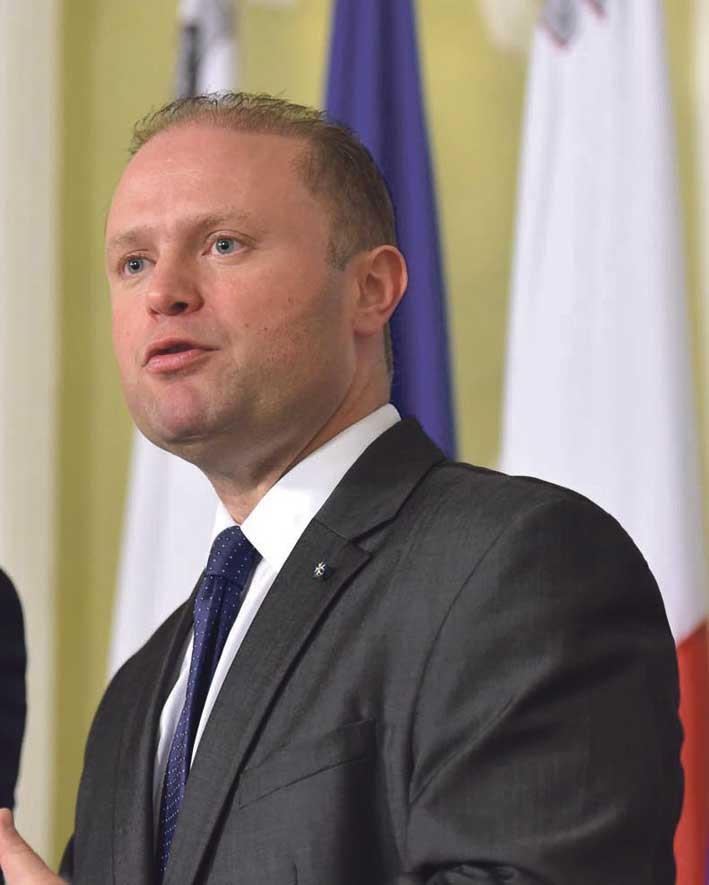Prime Minister Joseph Muscat insisted today that solidarity between EU member was not only limited to migration but also economic and social issues.
Dr Muscat was speaking in Rome, on the eve of the signing of the Declaration of Rome, 60 years after the founding of the EU. He was addressing a Citizens' Dialogue event along with the High Representative of the Union for Foreign Affairs and Security Policy Federica Mogherini.
Mrs Mogherini said migration is a global crisis. "We are part and parcel of this global problem, we need to try to do better and be more unified." There was strength in the action the EU has taken so far, she explained, pointing towards the Union's military intervention in the Mediterranean through the investment in coast guards and the dismantling of smuggling operations.
Dr Muscat added: "Solidarity is not a la carte. We need to be consistent and accept it even when it does not benefit the individual member state. You should not call for solidarity only when you need it, and that has to be in our policies."
Dr Muscat and Ms Mogherini took questions from the audience during the debate, which was mediated by Rai News Director Antonio di Bella.
Mrs Mogherini said the European Union was the greatest peace project the world had ever seen. It is important, she said, that European citizens remind themselves that 60 years ago Europe was defined by internal fighting and division. "Today we are a global power, trade partner, and at the forefront of humanitarian aid."
A former Erasmus student, she praised the programme, saying that it was the greatest achievement ever accomplished by the EU. "We need to celebrate the Union's accomplishments in order to provide us with the vision and focus for the future."

For Mrs Mogherini, the Declaration of Rome is an occasion to re-assert and rethink our unity instead of focusing on our divisions.
Referring to the London terror attack, Dr Muscat said the global reaction, particularly in Europe, proves that solidarity with other nations is above Brexit. "Whatever happens between us there is an indissoluble bond. As Europeans we share a broader dimension that goes beyond any institution."
Dr Muscat said people often ask whether the EU has reached its retirement age. "I believe that we should renew ourselves and find the vigour that has been missing for the past few years and move forward with an optimistic idea of the EU." He said it is important to not only praise the EU's intent to forge dialogue with its citizens but also to be critical of it.
He said people need to be realistic and recognise that the problems the EU is facing are the result of the large-scale enlargement that occurred in 2004, which Malta formed part of.
He also referenced the issues surrounding negotiations regarding a two-speed Europe. "There is the school of thought that if states were to move at different speeds there would be the risk that it would create an unequal situation. However, people have to realise that this is happening today since not all EU member states have joined Schengen. If a country wants to move forward and meets the criteria then they should be able to."

Asked by an audience member as to how the EU would look like in 60 years' time, both Mrs Mogherini and Dr Muscat agreed that it would be a much larger union. Dr Muscat said that if the EU does not make the necessary decisions today it will not remain the global player it is today.
EU Common defence
The pair also faced questions on the possibility of a fiscal union to fund a common EU defence system. Dr Muscat stressed Malta's position as a neutral contrary and that the government's policy has always been based on dialogue. However the decision to fund a common defence should rest within the individual countries.
Mrs Mogehrini said that a common defence system has long been part of the EU project and was included in the Lisbon treaty. "There have been 16 military missions with the EU flag, such as the Sofia Operation and pirates in Somalia. We look to combine military presence with dialogue."
EU member states already fund common defence system through investments in humanitarian aid and climate change, she explained.
Globalisation
The Rome Declaration makes reference to the EU's role as a shaper of globalisation, and Mrs Mogherini faced questions as to how this would be achieved. She said that firstly the EU is working hard to push forward some social and economic policies. She then referenced the EU's ability to forge new relationships with third countries, pointing towards the trade deal with Canada, and trade negotiations that have been concluded but are yet to be finalised with Japan.
On the subject, Dr Muscat said that the USA's protectionist policies present a unique opportunity of the EU. "The EU has always been second to the USA, now we went from policy taker to policy maker." He stressed however that the EU should not become a union of austerity but rather strengthen its social aspect. "We can influence globalisation and ensure workers are considered and protected."